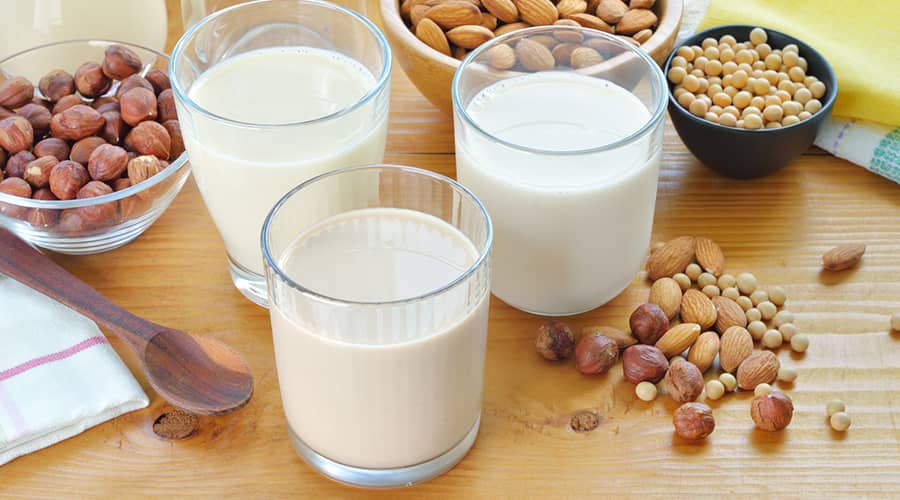



Hidden calories in healthy foods: 5+1 surprising treats that don’t help with weight loss
While we try to maintain our health and keep our weight stable, we tend to forget that some foods, basically beneficial, can also significantly increase our daily calorie intake.
Here are 5+1 foods that we often consider “harmless,” yet it is worth paying attention to their consumption during our diet.
Let’s look at calorie-dense foods that we think are healthy.
1. Olive oil and its relatives – Useful but calorie-dense
Olive oil and other vegetable oils undoubtedly play an important role in a healthy diet: they are rich in vitamins, antioxidants, and beneficial fatty acids that help maintain cardiovascular health. Moreover, when consumed with vegetables, they promote the absorption of fat-soluble vitamins, thus strengthening our immune system.
However, it should not be forgotten that oils are extremely calorie-dense. One tablespoon (about 15 ml) of olive oil can contain up to 140 kcal! For example, if you drizzle a salad with two tablespoons of olive oil, you add more than 280 calories — almost equivalent to the calorie content of a medium slice of chocolate cake. Therefore, it is advisable to moderate the amount used and consider lower-calorie alternatives, such as lemon juice or low-fat yogurt-based dressings.
2. Sauces and dressings – The secret calorie trap
A little ketchup or mayonnaise for your sandwich? It might seem insignificant, but they can silently add a lot of calories to your meal. For instance, one tablespoon of mayonnaise contains about 90 kcal, while the same amount of ketchup has 15-20 kcal. This may not sound like much, but if you routinely use them — for example, on burgers or simple fries — you can easily add 300-400 extra calories to your daily intake.
If you’re looking for healthier options, try sugar-free sauces or dressings made with low-fat yogurt. Homemade dips flavored with fresh herbs and garlic make great alternatives.
3. Nuts – Healthy but best consumed in moderation
Nuts are excellent sources of proteins, fibers, and healthy fats, which support heart health and contribute to a feeling of fullness. However, these little treats can easily become calorie bombs: 100 grams of almonds contain about 585 kcal, and the same amount of walnuts has 654 kcal.
A handful, approximately 30 grams, can contain 150-200 calories by itself. It’s worth eating them in small portions and adding just a spoonful to salads or yogurt for a crunchy texture.
4. Flavored drinks – The fortress of liquid calories
Carbonated soft drinks, lemonades, and flavored teas often contain more sugar than we expect. An average 300 ml lemonade has about 60-80 kcal, while a glass of sweetened tea can have 70-90 kcal.
Even more dangerous are various coffee drinks: a milk coffee or latte with sugar can contain 200-300 calories. So, if someone consumes these drinks multiple times a day, their daily calorie intake can quickly increase without them noticing.
5. Dairy products – Hidden fats and calories
Dairy products like yogurt, sour cream, or various cheeses are important sources of calcium but often have high fat content. For example, one tablespoon (about 15 g) of 12% sour cream contains 20-25 kcal, and we often use larger amounts without counting.
Cheeses, especially harder and fattier types like Parmesan or cheddar, can also be fattening. 100 grams of Parmesan contains 392 kcal, while a medium slice of Trappist cheese has 100-120 kcal. Those wanting to lose weight should use cheeses sparingly, preferably as a seasoning.
+1. Fruits – Sugary temptations
Fruits are important sources of vitamins and antioxidants but can also be high in calories due to their natural sugars. For example, 100 grams of grapes contain about 60 kcal, while the same amount of banana has 90-100 kcal.
A common mistake is not considering the quantity consumed: one large bowl of grapes or several bananas can be eaten in one sitting, which may mean 300-400 calories. Therefore, it is recommended to consume fruits in moderation, for example, in smaller portions at breakfast or as a snack.
In summary, these 5+1 foods that are very healthy but brutally fattening can easily sneak extra calories into your diet if not consumed mindfully. Remember to enjoy them in moderation and consider their calorie content carefully, especially when trying to lose weight or maintain a healthy balance.






